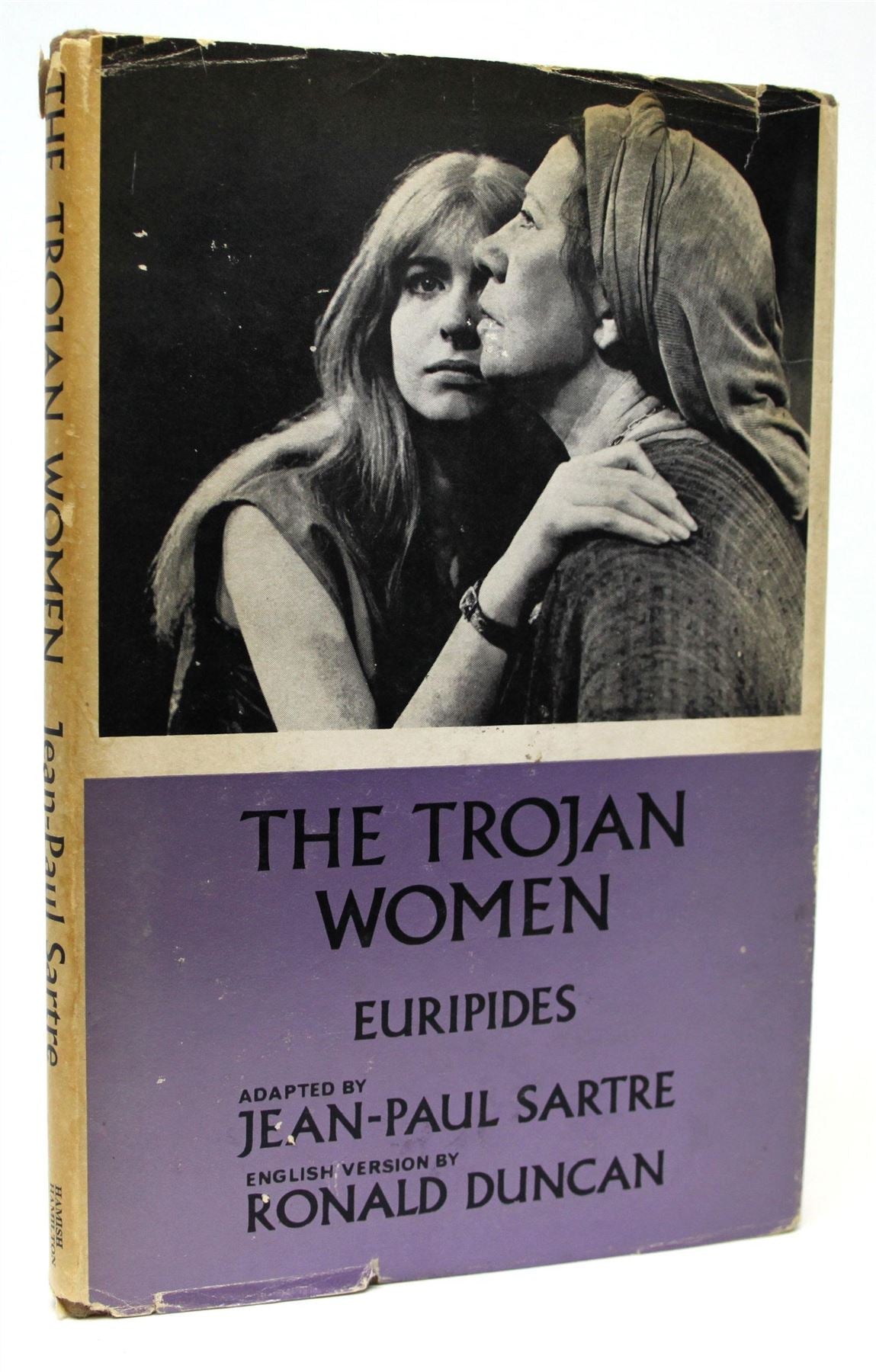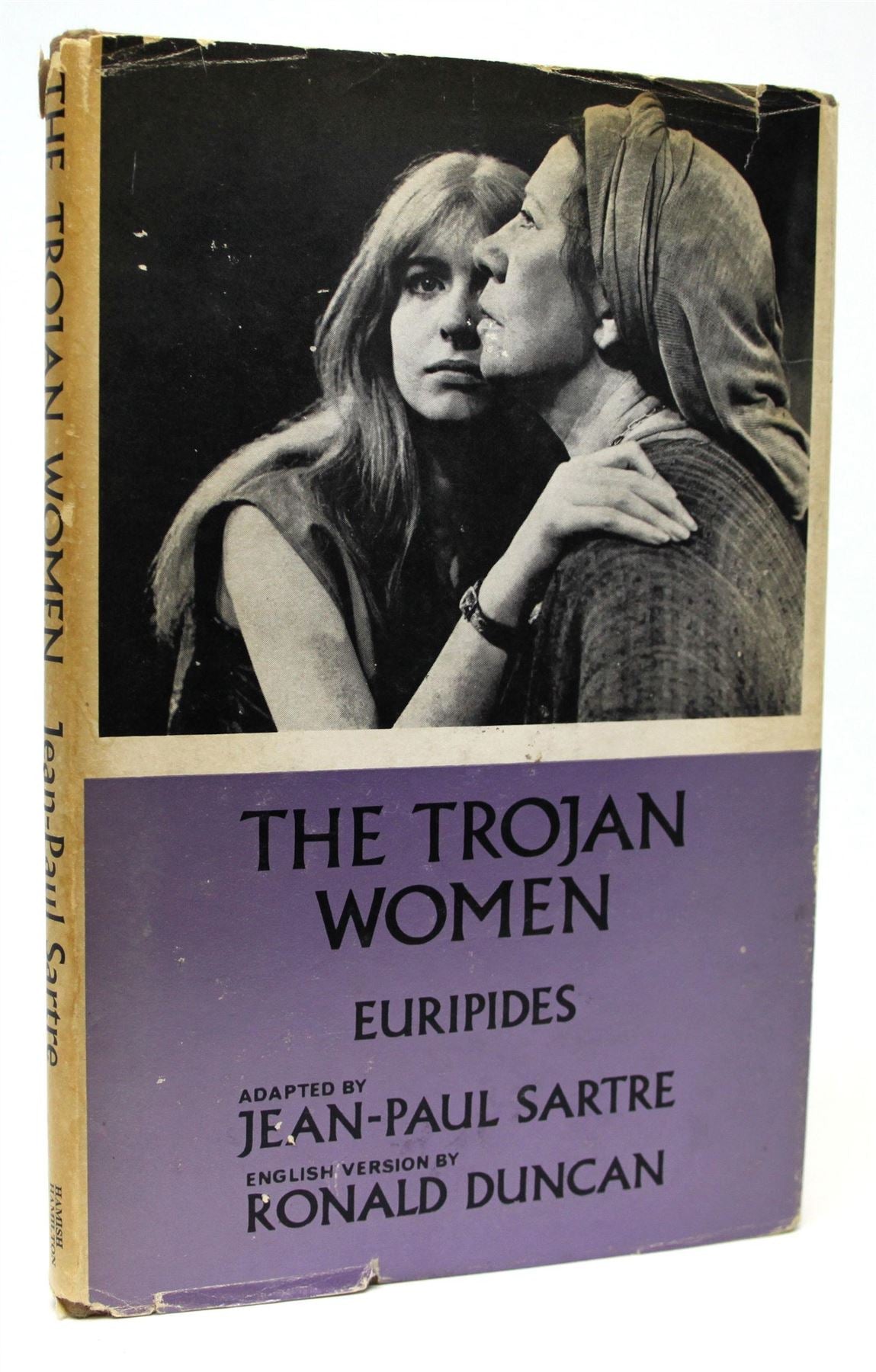Goldsboro Books
The Trojan Women
The Trojan Women
Publisher Hamish Hamilton
Genre:
Publication date:
Available from:
- Unsigned
- UK First Edition
- First Printing
- Hardcover
Low stock
Couldn't load pickup availability
Limited Edition Copies
View full details
-
Professionally Packed
All of our books that have a dust wrapper are covered in clear protective, removable film and are packed professionally in bubble wrap and a box for shipping so that they reach you in perfect condition.
-
Book Condition & Notes
Very good first edition, with bumped top corners. Previous owner's namestamp to front flyleaf. In a good unclipped dust jacket with chipping to edges, and several tears to jacket covers.
About the book
The Trojan Women is a tragedy by the ancient Greek playwright Euripides. It was first presented at the City Dionysia of 415 BCE, along with two other unconnected tragedies, Alexandros and Palamedes, and the comedic satyr play Sisyphos, all of which have since been lost to antiquity.
The play is a famous and powerful indictment of the barbarous cruelties of war. It was first produced only months after the Athenians captured the city-state of Melos, butchering its men and reducing its women to slavery, and the mood of the drama may well have been influenced by Athenian atrocities.
"The Trojan Women" follows the fates of Hecuba, Andromache, Cassandra and the other women of Troy after their city has been sacked, their husbands killed, and their remaining families about to be taken away as slaves (it runs parallel to the events in Euripides play Hecuba). It is often considered one of Euripides greatest works, and among the best anti-war plays ever written.
Collapsible content
About the Author
Collapsible content
GPSR EU Safety Information
1. Manufacturer Contact Information
Goldsboro Books Ltd - 23-27 Cecil Court, London, WC2N4EZ, enquiries@goldsborobooks.com, 02074979230
2. EU Authorised Representative Information
Easy Access System Europe - Mustamäe tee 50, 10621 Tallinn, Estonia, gpsr.requests@easproject.com
3. Safety Warnings
Not applicable







